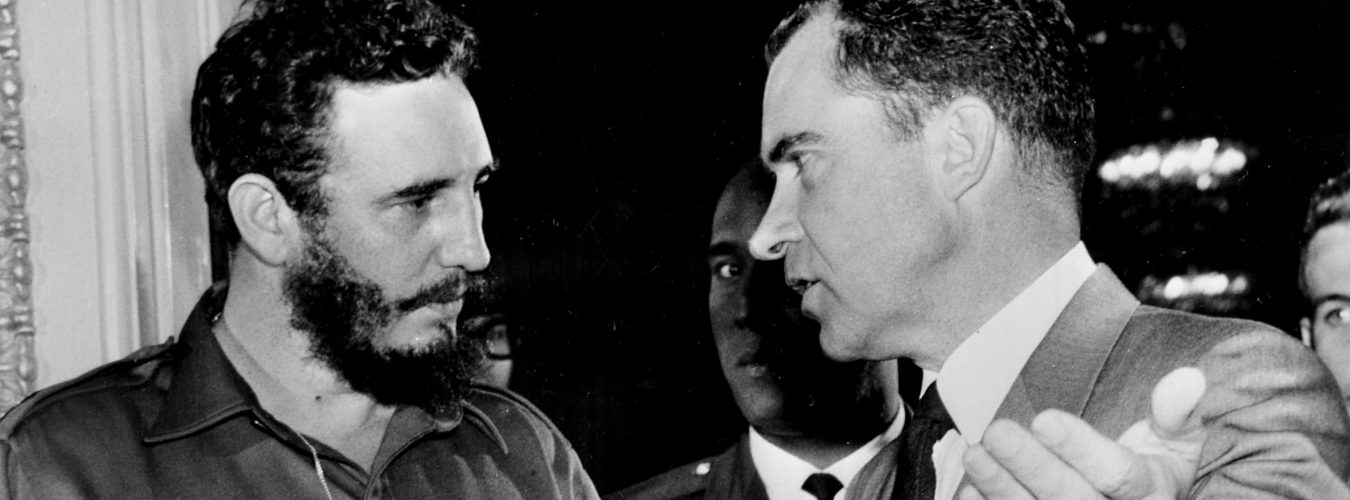
Peaceful protest for the freedom of Mandela. South Africa August 5, 1964
On June 12, 1964, the government of South Africa charged Nelson Mandela with sabotaging the regime and imprisoned him at the notoriously brutal Robben Island Prison. Mandela confessed: “I do not deny that I planned sabotage… I planned it as a result of a calm and sober assessment of the political situation that had arisen after many years of tyranny, exploitation and oppression of my people by the whites.”
Mandela’s imprisonment mattered to the Cold War, because of Mandela’s role in the African National Congress (ANC), and the United State’s perception of it. After the Sharpeville demonstrations and massacre of 1960, the government banned the ANC, which they accused of an communist agenda and strong Soviet ties. One example of this was the mere fact that the Soviet Union had shown much more interest in the South African revolution plan than many western nations, leading to Soviet funding. The External Struggle Against Apartheid notes, the Soviets “threw their support behind bourgeois dominated nationalist movements in the colonial world—including the ANC in South Africa.” This funding and support lead to a “close alliance” between the ANC and the South African Communist Party, along with the Soviets. Other facts include top members of the ANC being associated with the South African Communist party, including Mandela himself in his earlier years.
As the world came to the side of Mandela during his trial, there was largely silence from the United States. The Johnson Administration simply did not like nor trust Mandela, having him added to the country’s terrorism watch list. This curious membership is a result of his role in the sometimes violent African National Congress, which occasionally terrorized South Africa in protest of apartheid. Mandela was in charge of the group’s armed unit, training soldiers in northern African countries such as Libya for a potential revolution. Former CIA agent Donald Rickard confirms that Mandela’s 1964 arrest in South Africa was the product of a CIA tip to the apartheid government. In the interview Rickard “…told the film director he was a CIA spy who told the apartheid authorities how to catch Mandela.” The book The United States, South Africa and the Cold War, Ryan Irwin notes a 1962 quote from Assistant Secretary Williams, “Unless we are willing to abandon these Nationalists (South Africa) to the communists, we must re-establish and expand our contracts with them…” The United States had two objectives in the early 1960s, and that was to keep communism out of South Africa, and relations friendly. Nelson Mandela and his revolutionary idea got in the way of both those goals. Nicolas Grant adds in his book Winning Our Freedoms Together, “The assembled African journalists knew all too well that U.S. government declarations that the nation’s racial problems were consigned to the past were a myth—just as they would have been painfully aware of the irony of characterizing the Native Affairs Department as a compassionate force in South Africa.” There was clearly never an urgency to solve racial issues, it was all political. This is why the United States targeting Mandela makes sense. The nation did not view him as a leader of a historic civil rights movement, but simply as a troublemaker with communist ties.
The article titled “Verdict in South Africa”, written by The New York Times on June 14th, 1964, takes a largely critical, and controversial role on both the South African and United States governments in the arrest of Nelson Mandela. Interestingly enough, this was the only New York Times article with the key words “Mandela” and “arrest” written in 1964. This shows a pretty disappointing lack of coverage from a global newspaper about an event that helped change the world. This specific article takes a very interesting stance in comparing Mandela and associates to American heroes, stating they “…are considered Benjamin Franklins and George Washington’s of South Africa, not criminals deserving punishment.” It is quite a take to compare Mandela to the Founding Fathers of the United States, clearly implying that America is not taking enough action in opposing the arrest while also not upholding the values of those who build this country. This is also a bold, and controversial take from the New York Times in a time when black Americans could not vote. The article also adds that the “…continuance of South Africa’s indefensible policies makes it increasingly difficult for the United States and others to resist this pressure.” Here we see the author directly saying the United States is on the clock with fixing relations with South Africa because of the “…growing moral disgust among men of every color at the rigid racism of the South American government, at its denial of political rights for the majority of South African’s inhabitants.” It is obvious that the article has a clear issue with the moral basis of the apartheid system, using phrases such as “moral disgust”. This article seems very opinionated and again could be controversial to some in a time where black Americans could not vote. In conclusion the article is openly criticizing the United States and South African governments in a controversial and critical way.
Works Cited
“Retired CIA Agent Confirms U.S. Role In Nelson Mandela’s 1962 Arrest.” NPR.
May 16, 2016.
Gleijeses, Piero. “The United States, South Africa, and the Cold War: A Gordian Knot.”
Radical History Review. Duke University Press, 2014.
Stevens, Simon. “The External Struggle against Apartheid: New Perspectives,”. Humanity: An
International Journal of Human Rights, Humanitarianism, and Development. 2016. Volume 1: 303.
“Verdict in South Africa.” New York Times Jun 14, 1964: 8.
NICHOLAS GRANT. Winning Our Freedoms Together: African Americans and Apartheid,
1945–1960. Chapel Hill: The University of North Carolina Press, 2017.

